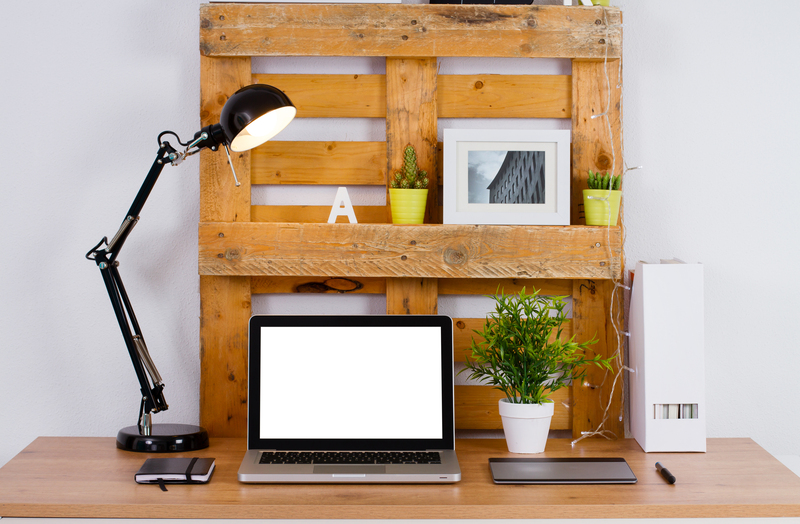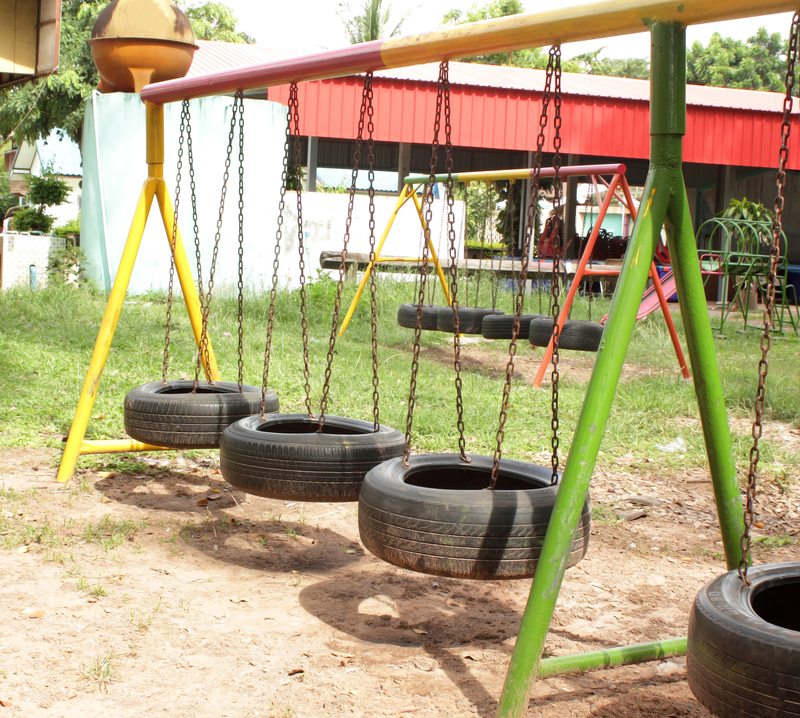De-clutter Your Way to Tranquility and Stress Relief
In a world bustling with constant activity and overflowing information, our physical spaces often reflect the chaos of our minds. The accumulation of items, papers, and digital clutter can effortlessly turn our sanctuaries into sources of stress rather than calm. If you've ever wondered how you could reclaim tranquility by simplifying your environment, you're in the right place. Discover how to de-clutter your way to tranquility and stress relief, and embrace a more peaceful, organized lifestyle.

Understanding the Connection Between Clutter and Stress
Multiple studies highlight the direct link between a cluttered environment and heightened stress levels. Clutter triggers sensory overload, making it difficult to focus and process information. This constant visual reminder of disorganization can trap you in a cycle of anxiety, overwhelm, and even guilt.
- Clutter drains your energy: Instead of being a haven, your home becomes a reminder of tasks left unfinished.
- Clutter impacts sleep and productivity: Crowded spaces may disrupt sleep patterns and decrease day-to-day efficiency.
- Clutter makes it difficult to relax: When you see mess around you, your mind finds it challenging to rest, often exacerbating feelings of unrest.
Signs That Clutter Is Affecting Your Well-being
- You often feel overwhelmed when entering certain rooms.
- You avoid hosting friends or family because of disorganization.
- Lost or misplaced items are a daily frustration.
- You experience irritability or fatigue in cluttered environments.
Benefits of De-cluttering for Tranquility and Stress Relief
Making the conscious decision to de-clutter for stress relief and inner peace yields more than just a tidy home--it transforms your daily experiences. Below are some profound benefits linked to clearing out physical and mental spaces:
- Enhanced Mental Clarity: A streamlined environment cultivates a serene mind, encouraging focus and creativity.
- Improved Sleep Quality: A calm, clean bedroom supports restful sleep free from distractions.
- Boosted Productivity: With fewer distractions, you can accomplish tasks efficiently, leaving more time to relax.
- Increased Sense of Accomplishment: Tackling clutter instills a sense of achievement that fuels further motivation.
- Greater Harmony: Sharing a decluttered space with loved ones results in fewer conflicts over lost items or mess.
- Reduced Anxiety: Knowing everything has its place lessens feelings of worry and unease.
How to Begin Your De-cluttering Journey
Starting the process may feel daunting, especially if you're surrounded by piles of belongings. However, the path to tranquility through decluttering can be both manageable and rewarding if approached systematically.
1. Set Clear Goals and Intentions
Before touching anything, reflect on your motivation. Are you seeking a peaceful workspace, a restful bedroom, or a welcoming living room? Defining your de-clutter goals for stress relief provides direction and helps you measure progress.
- Write down your top priorities.
- Visualize how each room would feel once decluttered.
- Communicate your intentions with household members.
2. Start Small and Stay Consistent
Overhauling your entire home in one go is unrealistic. Instead, focus on one area, shelf, or drawer at a time. Consistency turns small victories into lasting transformation.
- Dedicate 10-30 minutes daily to a de-cluttering task.
- Celebrate each completed project.
- Keep a visible checklist for motivation.
3. Use the Four-Box Method
This classic approach simplifies decisions by sorting items into four categories: Keep, Donate, Recycle, and Trash. Label boxes or bins and tackle items one at a time.
4. Ask Key Decluttering Questions
If you're stuck, ponder these crucial questions:
- Have I used this in the last six months?
- Does it bring me joy or serve a purpose?
- Can it be replaced or digitally stored?
- Is it taking up valuable space I need?
5. Organize What You Keep
Once you've pared down, assign every item a "home." Use labeled containers, shelves, or digital folders where applicable.
- Group similar items together.
- Make frequently used objects easy to access.
- Label boxes and shelves for easy retrieval.
6. Establish a Maintenance Routine
Decluttering isn't a one-time event. Develop habits to prevent clutter from sneaking back:
- Practice a daily "reset" at the end of each day.
- Adopt a "one-in, one-out" policy for new items.
- Regularly evaluate your possessions and needs.
Decluttering Different Areas of Your Life
De-cluttering for peace involves more than physical belongings. Clear space in every aspect of your life for comprehensive stress relief.
Kitchens and Pantries
The kitchen is the heart of the home, but it's also a magnet for clutter. Streamline your kitchen by removing duplicate gadgets, expired foods, and mismatched Tupperware. Organize by zones (baking, prepping, cooking) and keep countertops clear for a soothing, functional environment.
Bedrooms: A Sanctuary for Rest
Your bedroom should be a retreat from the world. Store clothes seasonally, use under-bed storage effectively, and minimize nightstand clutter to promote relaxation and stress relief.
Home Offices: Maximizing Productivity
Paper piles and tangled cords lead to distraction. Opt for digital storage, cable management solutions, and a "clear desk" policy at the end of each day. A tidy workspace translates to mental clarity and efficiency.
Bathrooms: Creating a Spa-like Escape
Toss expired products, store essentials in bins, and limit surfaces to daily-use items. Fresh towels and a single fragrant candle can instantly elevate the space into a tranquil oasis.
Living Areas and Entryways
These transitional spaces easily collect shoes, mail, and clutter. Utilize hooks, baskets, and shelves to simplify organization and create a welcoming first impression.
Digital Decluttering
Digital clutter, like overflowing email inboxes and scattered files, drains focus much like physical mess. Set aside time to:
- Unsubscribe from unwanted emails.
- Organize documents into clearly labeled folders.
- Delete apps and files that no longer serve your goals.
Keeping your digital space clean enhances productivity and reduces subconscious stress.
Decluttering and Mindfulness: A Powerful Duo
Practicing mindfulness as you de-clutter for tranquility deepens the benefits. As you sort items, remain present and nonjudgmental. Notice how each object makes you feel, and let go of items that no longer align with your well-being. This process fosters gratitude for what you own and mindfulness in future consumption.
- Decluttering Mindfully:
- Pause to appreciate favorite items before storing them.
- Let go of guilt attached to unused gifts or items.
- Celebrate the freedom gained by releasing the excess.
Overcoming Common De-cluttering Challenges
While the payoff is substantial, it's normal to encounter roadblocks on your journey to a clutter-free life. Arm yourself with these solutions:
Sentimental Attachments
It's hard to part with keepsakes. Allow yourself a memory box for the most cherished items, and photograph others before letting them go.
Lack of Time
Busy schedules are a reality for most. Break decluttering into micro-tasks, such as a five-minute drawer cleanout, and watch progress add up over weeks.
Overwhelm
If you feel frozen, invite a supportive friend or hire a professional organizer. Fresh eyes and encouragement can make all the difference.
De-clutter Your Mind for Ultimate Stress Relief
Physical clutter often mirrors mental clutter. While creating order in your home, also prioritize practices that organize your mental space:
- Journaling: Clear your thoughts by writing daily reflections.
- Meditation: Train your focus and decrease mental clutter.
- Prioritizing Tasks: Use to-do lists and planners to track responsibilities and free your mind.
- Limit Information Overload: Curate your news and social media feeds intentionally.

Maintaining Tranquility: Habits for Lifelong Clarity
Achieving tranquility through de-cluttering is a continual process. Cultivate habits that prevent future buildup:
- Practice daily tidying rituals for five minutes each evening.
- Be intentional with purchases: ask "Do I really need this?"
- Schedule regular check-ins (monthly or quarterly) to audit your belongings.
- Embrace the joy of simplicity--value experiences over things.
Conclusion: Your Path to a Tranquil, Stress-Free Life
Clearing the clutter from your life is a transformative act of self-care. A decluttered home supports mental tranquility, healthy routines, and a sense of harmony that extends into all corners of your existence. It's not about perfection--it's about creating space for what truly matters and letting go of what doesn't serve you.
You don't have to embark on the journey alone. Invite family and friends to join you in the pursuit of stress relief through decluttering. Together, celebrate each milestone and enjoy the revitalizing calm that an organized environment provides.
Remember, the road to tranquility is built one decision at a time. Start small, stay consistent, and let every step bring you closer to the peaceful, stress-free home and mind you deserve.
- Tranquility through decluttering is attainable--begin your journey today!
- De-clutter your space, de-clutter your mind, and unlock lasting stress relief.